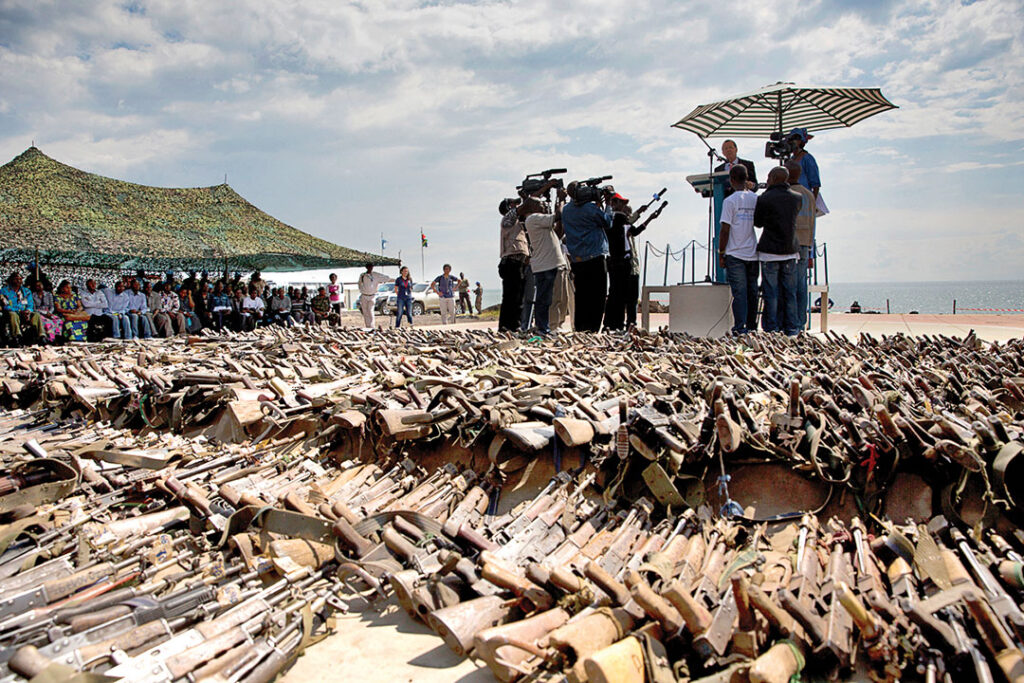ADF STAFF
When the extremist group Ansar al-Sunna began spreading terror in the Cabo Delgado province of northern Mozambique in 2017, its fighters brandished machetes. Today, the insurgents carry assault rifles and rocket-propelled grenades.
Analysts say a major reason for this is extremists have captured equipment from the Mozambican military.
Militant groups throughout the continent have armed themselves this way.
“Contingent-owned equipment (COE) loss has become a critical vulnerability for national armies and peace operations in Africa,” arms expert Eric G. Berman recently wrote for the Africa Center for Strategic Studies. “Non-state armed groups have regularly targeted and overrun peacekeepers and national armed forces to seize lethal and non-lethal material.”
Over the past 10 years in Africa, armed groups have targeted and taken millions of rounds of ammunition, thousands of small arms and light weapons, hundreds of heavy weapons systems, vehicles and motorcycles, uniforms, communications equipment, and fuel.
“Armed groups use this material against peacekeepers and armed forces in complex ambushes, perpetuating the cycle of munitions loss,” Berman wrote. “Platoons have been targeted at outposts. Companies have been targeted at forward operating bases. Battalions have been targeted at sector headquarters. And dozens of supposedly secure sites, both small and large, have been overrun and their stores looted.”
In addition to battlefield loss, the study revealed that illicit weapons came from national stockpiles and from peacekeeping forces due to corruption, mismanagement and theft.
Multiple studies emphasized the following as among the best practices for securing weapons and preventing them from falling into enemy hands:
Security around weapons depots and for stockpile transportation.
Permanent records in a registry of weapons, ammunition and related materiel for all military and peacekeeping forces. This includes weapons-marking programs, pre-deployment assessments, post-deployment stock recording and investigations into reported losses.
Weapons recovery programs — amnesties, exchanges, militant reintegration.
Participation in international information-sharing platforms to access weapons-trafficking intelligence.
Sharing regional and subregional arms-control standards.
Experts also said leaders should prioritize morale, transparency, and payment and benefits for Soldiers to combat corruption and theft.

